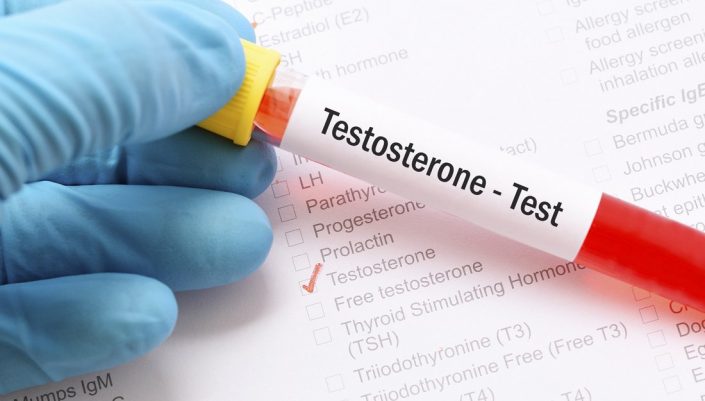Declines in levels of testosterone may increase risk of prostate cancer

Image: School of Public Health
In 2014, more than 3 million men in the United States were living with prostate cancer, and in 2017, there have been more than 160,000 new cases diagnosed. Since 1941, researchers have known about an association between testosterone levels and prostate cancer. However, the causal role of testosterone on cancer development remains unclear. Studies using testosterone levels measured at a single point in time have found, variably, positive, negative or no association between testosterone and prostate cancer. This inconsistency seems to point to the importance of analyzing long-term variations of this main male hormone on prostate cancer development, but there has been little research studying the subject.
A new study led by Xiaohui Xu, associate professor at the Texas A&M School of Public Health, analyzed this complex association using real-world data. The study, published in the Journal of Urology, used data from 376 German men between the ages of 45 and 74 who had been diagnosed with low testosterone. Unlike other studies, Xu’s team analyzed longitudinal data on testosterone levels for each participant, who has been followed for two to 11 years, rather than testosterone levels measured at a single point in time, to investigate the impact of long-term variations of testosterone levels on cancer risk.
One hypothesis for the inconsistent associations found in previous studies of testosterone and prostate cancer is that prostate cells have a varying level of optimal testosterone. Changes in testosterone levels, it is thought, could lead to changes in prostate cells that alters their sensitivity to hormones and might make development of cancerous cells more likely. To find out more, the researchers came up with three indicators to measure the changing testosterone levels over time for each participant: an individual’s variation in testosterone levels, the individual’s maximum decline relative to their average and the averaged magnitude of testosterone decrease. Xu and his colleagues also tracked each subject’s age, family history of cancer, alcohol use and smoking, which could act as confounders.
“Subjects who experienced their initial testosterone drop at a younger age had a higher likelihood of developing prostate cancer. We also saw an increased risk among those who had a larger magnitude drop overall and a wider range of variation in testosterone levels,” Xu said. “These findings appear to support the notions that unstable or substantial decline of testosterone levels increase the risk of developing prostate cancer.”

